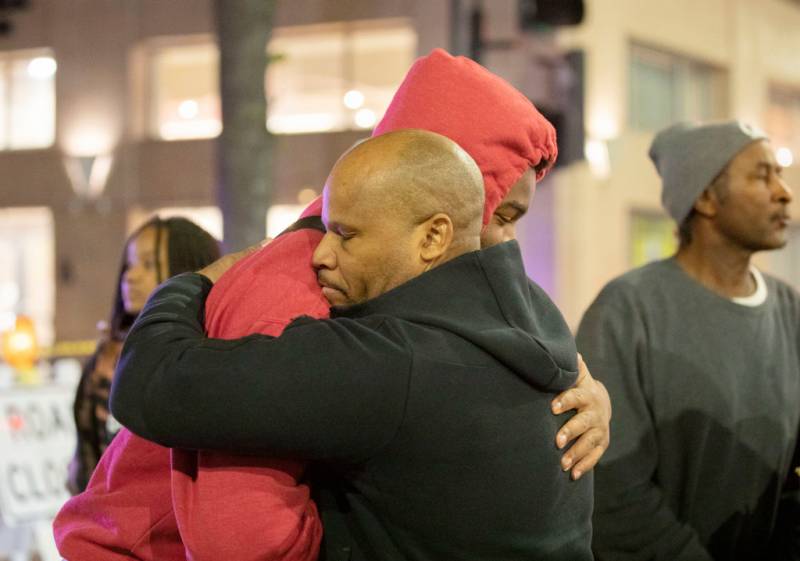It is starting to seem, as we learn more about the case, that maybe he did get credits because of Prop. 57. But it's complicated because he actually qualified for Prop. 57 in part because the Sacramento district attorney made a plea deal with him.
So this assault wasn't considered violent, and they didn't go for the kidnapping charge. This all matters politically because the Sacramento district attorney, Anne Marie Schubert, is running for attorney general and she's running really from the right of the current attorney general, and trying to attack him on things like Prop. 57.
BRIAN WATT: But Sacramento Mayor Darrell Steinberg, a Democrat, is among those arguing that the issue goes beyond gun control, saying it's actually systemic?
MARISA LAGOS: He's also talking about the need to not just lock people up, but actually help them turn their lives around once they're out. Here’s what he said during a news conference last week:
SACRAMENTO MAYOR DARRELL STEINBERG: Until these systems have a legal requirement to meet that person leaving the county jail and wrap ourselves around them to ensure that they’re sheltered, housed, that they’re treated for whatever underlying conditions they have, that they are provided some sort of vocational assistance, so they can work, until that is required as a matter of law, all this money is going to help a lot of people.
MARISA LAGOS: Steinberg joined with several state lawmakers and criminal justice reform advocates this past week and asked the governor to make a $3 billion investment to what they see as ways to tackle these systemic problems. They say, funding community groups that work on the ground directly to prevent violence ... funding ways that survivors and victims can actually get financial assistance to keep themselves safe and deal with the fallout from these traumas are going to be more effective over the long term than simply, say, funding more law enforcement.
BRIAN WATT: And how does that line up with what you're hearing from victims and those who work directly with survivors of violent crime?
MARISA LAGOS: When I go out and talk to people who have lost family members or been victims themselves or just people who live in communities where unfortunately we see this type of gun violence happen regularly, I hear a lot of frustration with kind of everybody in the political world. They feel like they're not being heard. I recently went to Fairfield and talked to Ebony Antoine about her experience. Her husband was gunned down in their Stockton apartment in 2010. They believe that it was because he had helped to respond to another shooting outside of their door not long before, and that he was kind of mistaken for a witness by gang members. But there's been no arrest. This killing happened in front of her three kids and her godson, and she says the public programs meant to help victims like her that are actually written into law were either difficult or impossible to actually secure.
EBONY ANTOINE: Honestly, I was treated like I really didn't matter. I had to advocate for everything. I didn't have Section 8, I didn't have any housing. I thought that maybe they would assist me with the emergency shelter. They did not. They did cover the funeral. I sent in receipts for movers. Somehow, they were lost, so I was never reimbursed. I didn't have the money to move into an apartment. Every time they say no, it is so hard to pull yourself back together.
MARISA LAGOS: Ebony Antoine now runs a nonprofit called Broken by Violence, that helps victims and their families in Solano County access those services that she's struggled to get.
BRIAN WATT: The primaries are approaching, and it seems like crime is going to be a big issue in that election and the November midterms, both here and nationally. So what are you watching for?
MARISA LAGOS: I just hope that we don't see legislation and policy sort of done by anecdote before we have all the facts especially, and that we acknowledge the cycles of trauma that we've seen play out over decades. Often the people who tend to be victims or survivors or have family members who are victimized end up in the system themselves. Ebony told me that her godson was a teenager when that murder happened in front of him. He is now in prison for murder himself. So I just hope we can kind of come together and put the politics aside.

